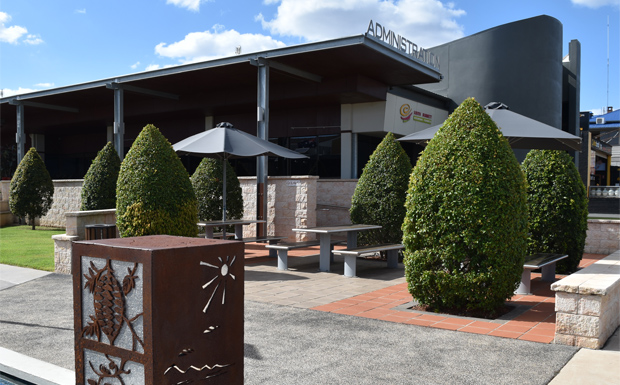
July 19, 2016
by Dafyd Martindale
Proposed reforms to the Wine Equalisation Tax (WET) announced in this year’s Federal Budget would be a disaster for South Burnett wine producers if they were allowed to go ahead, the South Burnett Wine Industry Association says.
The WET rebate was introduced in 2004 to prop up smaller winemakers operating in regional areas.
But loopholes in the rebate’s eligibility criteria have allowed bigger producers to access the tax break, undermining its intended purpose.
Some larger producers had been dividing sales between artificial business structures to claim the rebate, and some New Zealand wineries had managed to access WET rebates, too.
These factors had caused a major distortion in wine and grape prices, and had also led to the creation of ‘virtual wineries’ that were simply trading in wine rather than growing grapes.
The Federal Government announced a range of measures in this year’s Budget which it said would address industry concerns with the way the rebate operated.
Until now, winemakers have been able to claim back as much as $500,000 a year that they’ve paid out in WET.
But the cap on the WET rebate will be lowered to $350,000 from July 1, 2017, with a further drop to $290,000 the following year.
Another suggested reform will be to remove bulk and unbranded wine from the rebate scheme.
The Federal Government says these reforms will save $300 million over four years, and it proposes to give $50 million of these savings to the Australian Grape and Wine Authority to promote Australian wine overseas, and wine tourism at home.
But the SBWIA thinks the changes would be a disaster for local winemakers.
At the group’s meeting on Tuesday night, SBWIA president Jason Kinsella said while there were some positives in the suggested reforms, South Burnett producers would be disproportionately impacted by any lowering of the cap.
“We are home to small to medium sized wineries, and these are the ones that will suffer most if the cap is lowered,” Mr Kinsella said.
“Most of our wineries depend on their current WET rebates to keep trading.
“As the reforms currently stand, they would have a devastating impact on our members.”
Mr Kinsella said while some wine industry bodies were giving blanket support to the WET tax reforms, these groups drew most of their members from “the big end of town”.
Those wineries were ineligible to claim WET rebates, but would be advantaged if smaller wineries were forced to close their doors.
However, industry associations which represented predominantly small wine producers – such as Wine Tasmania and Wines of Western Australia – were strongly opposed to the changes.
“We need to put a submission to the Federal Government about this,” Mr Kinsella said.
The meeting voted unanimously to make a submission about the WET reforms as soon as possible.























